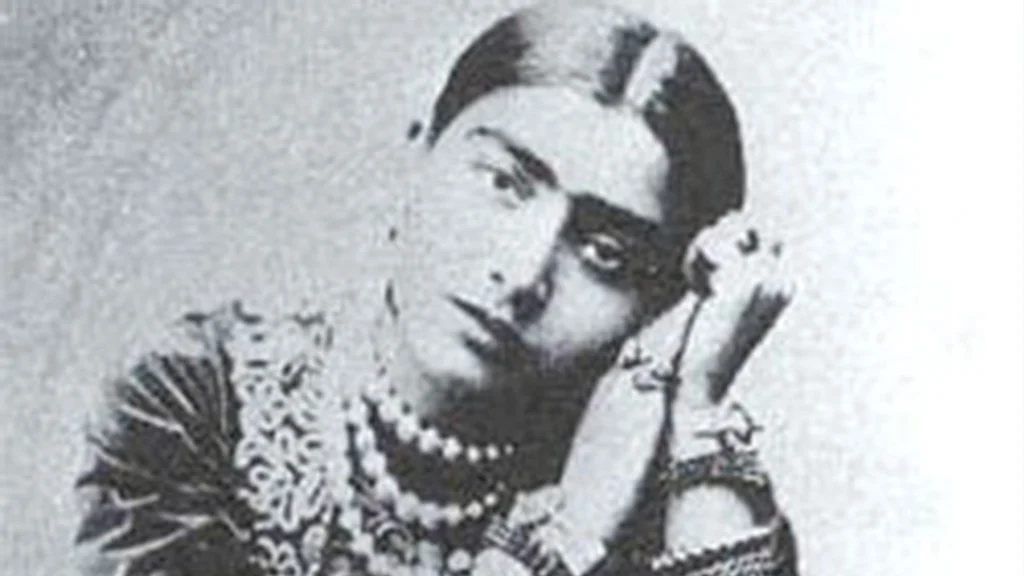People
Gauhar Jaan: The most famous ‘tawaif’ of British India
Gauhar Jaan, whose 145th birth anniversary has been celebrated by Google through a doodle, was a ‘tawaif’ of repute in British India.

Google is celebrating the 145th birth anniversary of Gauhar Jaan through a doodle today. Known to be among the first performers to record music on 78 rpm records, Gauhar Jaan was not only an iconic singer but also earned respect and popularity because of her intelligence and witty remarks.
According to Suresh Chandvankar of the Society of Indian Record Collectors, she is believed to have said on the day of the trial recording, "My name is Gauhar Jaan," .. This subsequently became the label of the first Indian album. Vikram Sampath later wrote her biography borrowing the same title.
Besides her musical talents, her strikingly good looks, flamboyant lifestyle, fluency in several languages and her ability to compose verses in Urdu and Hindi made her a popular figure, both nationally and internationally. She had the rare distinction of performing in front of Emperor George V at the famous Delhi Durbar in 1911.
Published: undefined
Gauhar Jaan never hesitated in trying something new with her craft of singing. That is what exhorted her to record her music, which was an important development because it democratised music as it became available to the common man breaking the class boundaries. She compressed <i>khayal</i> singing into three minutes. Her contribution to the Hindustani classical music is remarkable.
The legendary dancer and singer recorded more than 600 records between 1902 and 1920, across diverse languages, including Bengali, Gujarati, Tamil, Marathi, Arabic, Persian, Pushto, French, and English.
Gauhar Jaan never hesitated in trying something new with her craft of singing. That is what prompted her to record her music, which was an important development because it democratised music and now it became available to the common man, breaking the class boundaries. She compressed khayali singing into three minutes. Her contribution to the Hindustani classical music is remarkable.
A ‘tawaif’ of repute, she had her own stature and grace. During the 1920s, when the Indian elite, armed with western education, campaigned against Tawaifs and the Viceroy was approached for banning the profession, Gauhar commented that the Viceroy should mind his own business since his monthly salary was equal to what she received for one ‘mujra’!
Senior writer, journalist and scholar of music and theatre, Mrinal Pande, says that Gauhar was not only a scholar and artist, but also a strong, courageous and vivacious woman. Once when it was prohibited for Indians to stroll or drive on the road from 5 PM to 9 PM Gauhar went for a drive in her famed fitton car. The British officer on patrol first waved at her in greetings. But when he was told that she was an Indian, he ran to her and asked her to pay a fine of ₹500. She looked at him closely, patted his chin and said, “Oh, you are so good looking. I would have given you a thousand bucks in tip.” saying this, she carelessly gave him ₹500.
Mrinal Pande recalls an episode that Gandhiji’s close associate, Triloki Nath Aggarwal, had mentioned in his memoir, published in Dharmyug in 1988. “When Gandhiji was collecting donations for Swaraj Aandolan, he requested Gauhar, too, to donate something. She readily agreed. But on one condition, that Gandhiji would come to see her performance, the earnings of which she would donate. Gandhiji too agreed. But on the day of her performance, Gandhiji had some urgent political work to attend to. So he asked Maulana Shaukat Ali to collect the donation from her the next day.”
Pande, now an editor at National Herald, went on, “Gauhar Jaan had waited for long for Bapu and finally performed in his absence. She was unhappy. So, she told Maulana that she will only give half of the earnings as donation since Bapu did not keep his word!”
As author Vikram Sampath describes Gauhar Jaan in detail in his biography, she was outrageously extravagant in her spending habits (she's known to have thrown parties worth ₹20,000 in those days to arrange a marriage between her cats!).
The legendary musician and dancer was born in Azamgarh, Uttar Pradesh, as Angelina Yeoward. Her father was Armenian and her mother, Victoria Hemmings, was an Indian by birth.
She spent her last days as a court musician in the Mysore Maharaja's palace for a sum of ₹500 per month and breathed her last on January 17, 1930, in Mysore (now Mysuru).
Published: undefined
(With inputs from IANS).
Published: undefined
Follow us on: Facebook, Twitter, Google News, Instagram
Join our official telegram channel (@nationalherald) and stay updated with the latest headlines
Published: undefined